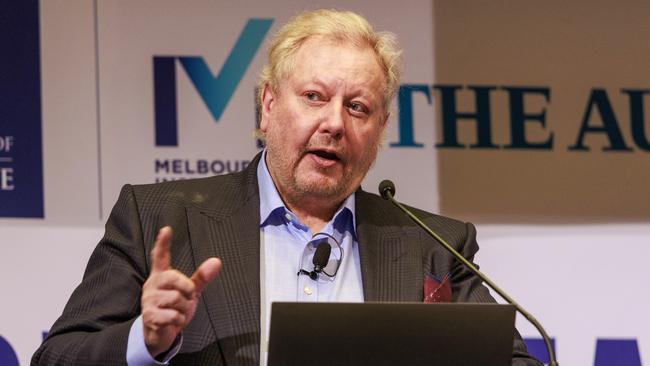From ARB to Wisetech: Why I love founder-led stocks and you should too
The research shows how founder-led stocks are big winners and the results season shows a string of local champions.

Every time we get to the annual results season I am always reminded of the long-term outperformance of founder-led companies.
When ARB, Reece, WiseTech Global, and Macquarie Technology report their full-year results, I am mindful the people behind these businesses are still driving strategy while ignoring the vicissitudes of the market.
The fact that bulk of their personal wealth is tied to the outcome of their efforts is a reason to keep a close eye on the companies whose share registers are dominated by founders, their families and friends.
As an investor, what gives me plenty of comfort is the copious research justifying that sense of wellbeing.
Wouldn’t you be comfortable with the roughly 10-year share price returns for ARB (+220 per cent), Reece (+310 per cent), Wisetech (+2685 per cent), and Macquarie Technology (+1748 per cent)?
Backing the argument to focus your investment efforts on founder-led listed companies is one of the most comprehensive studies on the subject by Credit Suisse.
The CS Family 1000 report examined 1000 publicly traded companies where the founder or founding family still had significant influence. First published in 2017 and updated in subsequent years, the report said founder-led companies outperformed broader equity markets by approximately 4.5 per cent annually over the long term.
Perhaps the most cited research into this subject is Bain & Co’s Founder’s Mentality framework. Bain’s research found companies which maintain founder-like qualities, such as an “owner’s mindset”, and “obsession with the frontline” tend to achieve higher revenue growth rates and superior shareholder returns.
In the complex system of investing, the knowledge that founder-led companies tend to outperform provides the raw ingredients for building an all-weather portfolio.
Founder-led firms tend to be more focused on innovation and long-term strategy, they often have a strong company culture rooted in the founder’s vision, they take more calculated risks, can be more disruptive and insurgent, and almost always focus on long-term growth rather than short-term gains.
Whether its America’s Bezos, Gates, Jobs or Zuckerberg, or Australia’s Tudehope of Macquarie Technology, Brown of ARB, Wilson of Reece or White of Wisetech, you will find that founders typically have substantial equity stakes in their companies, aligning their financial interests with those of other shareholders.
What business owner would, for example, care whether an additional billion dollars of revenue from a customer was received on June 30 or July 1? Analysts and the market may care, but business owners with a business owner’s mindset wouldn’t give two hoots.
In contrast, hired CEOs, while often highly capable and motivated to make money, may lack the same level of personal investment in the company’s success. Their career plans and corporate ladder-scaling dreams ensure compensation is frequently, although certainly not always, tied to short-term performance metrics.
This can lead to decisions that boost short-term stock prices but may not be in the best interest of the company’s long-term health. Qantas comes to mind as a recent example – a business now left with a damaged brand and a multibillion-dollar bill for replacing an ageing fleet of aircraft.

With their significant equity stakes, founders are more likely to prioritise sustainable growth, innovation, and long-term strategic planning. They don’t waste money on brand-building exercises; instead, they prioritise their spending on advertising “calls to action”.
Founder-led companies also tend to exhibit greater resilience in the face of adversity. This resilience often stems from the founder’s personal attachment to the company’s success. When times are tough, founders are more likely to double down, investing their time, energy and resources into turning the company around.
I have seen this multiple times. There’s an oft-ignored ratio in business called asset turnover.
The ratio compares a company’s gross revenue to the average total number of assets to reveal how many sales were generated from every dollar of company assets. When founders spend on R&D, or invest in assets for long-term revenue creation, this ratio plummets and impatient analysts become nervous, causing share prices to plunge.
When you see this occur to a reputable founder-led company with a long-term vision, it’s time to ignore the market and take advantage of its short-termism.
Elon Musk’s personal involvement in Tesla during its darkest days is another prime example of focused investment and reputation maintenance. Although he didn’t create the company, when it was on the brink of bankruptcy, Musk invested his money and worked to keep Tesla afloat. He is reported to have slept at the factory on and off for three years. This level of commitment is rare among non-founder CEOs who may be more inclined to seek a safer, less stressful career path when faced with such challenges.
Of course, founders can become blinkered and overly attached to their original vision, resisting necessary changes and innovations as the market evolves. This can lead to stagnation or even a decline if the company fails to adapt to a new reality.
Additionally, the concentration of power in the hands of a single individual can lead to governance issues, especially if the founder lacks the experience or willingness to delegate responsibilities effectively.
The bottom line, is founder-led businesses should represent a meaningful part of your portfolio. And in Australia, there are plenty of them.
Roger Montgomery is founder and chief investment officer at Montgomery Investment Management






To join the conversation, please log in. Don't have an account? Register
Join the conversation, you are commenting as Logout